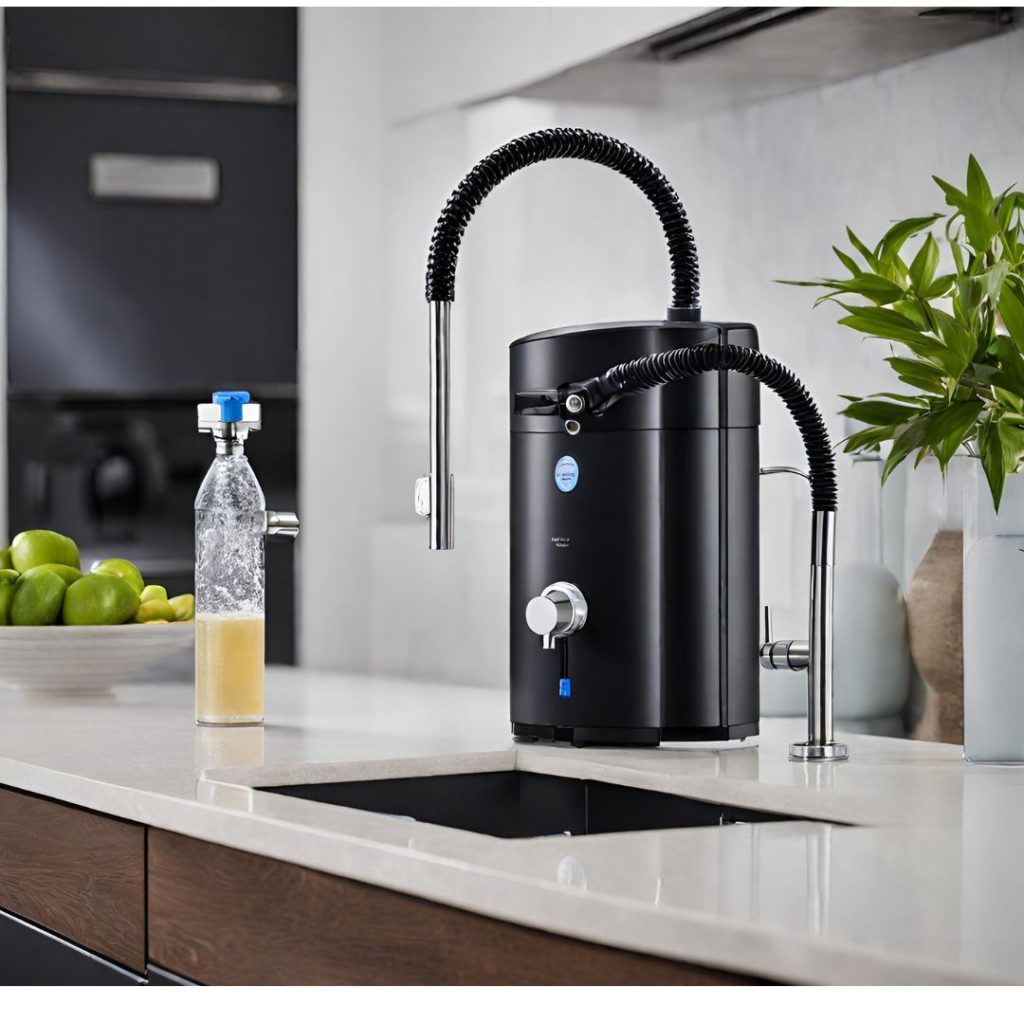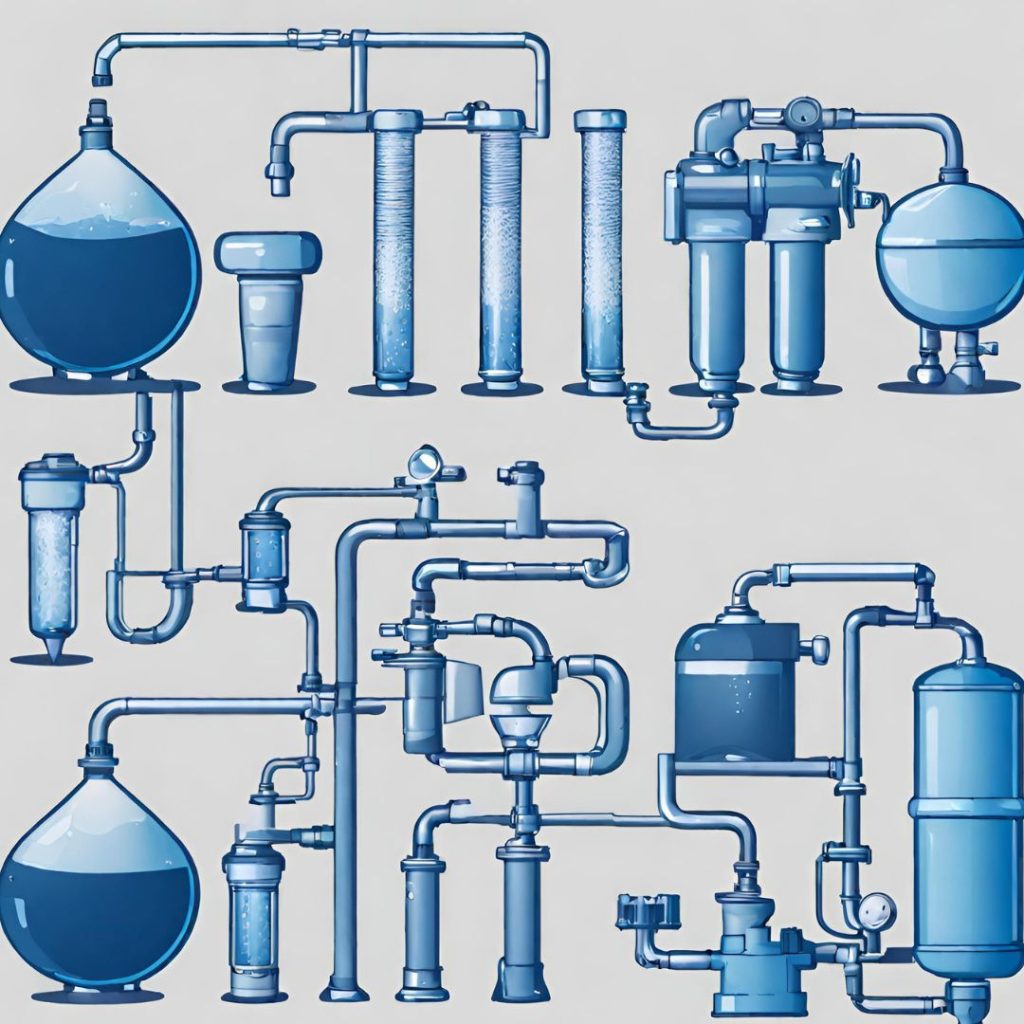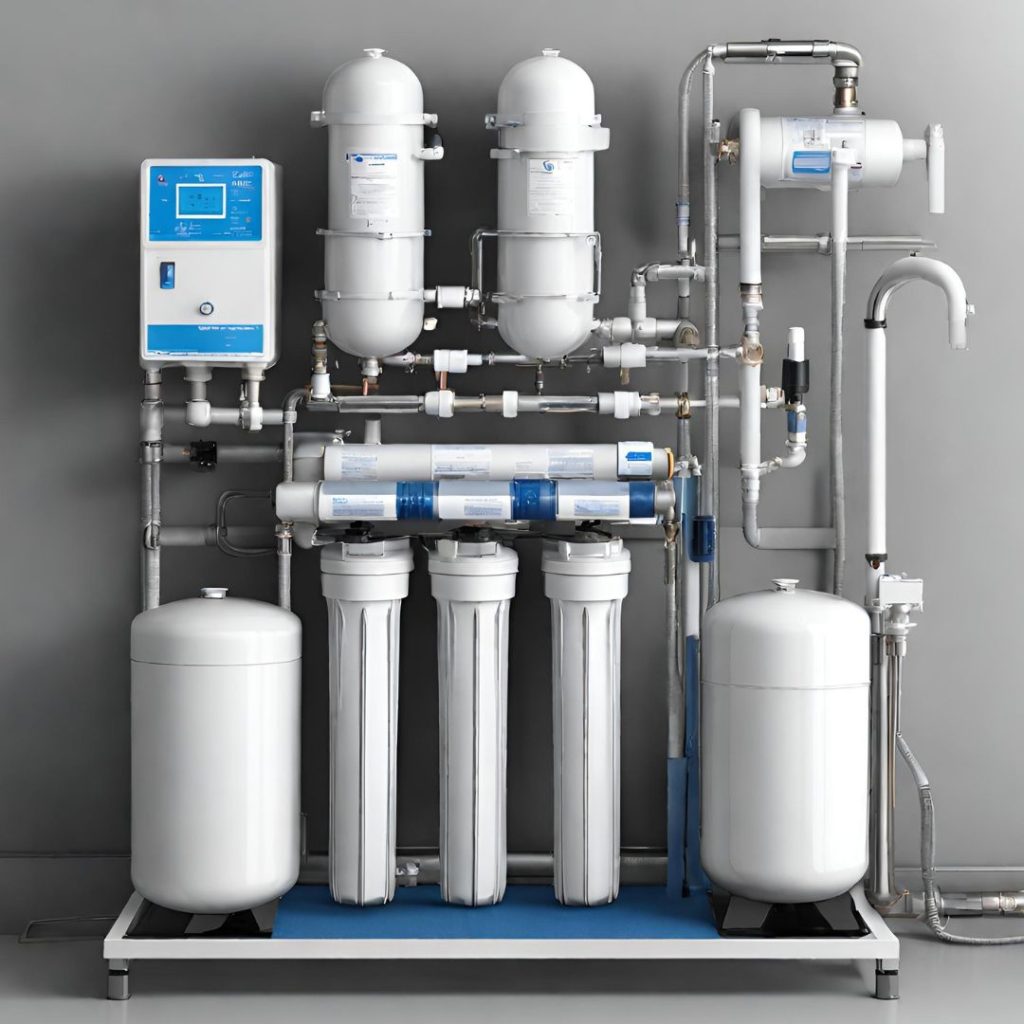As we step into an era where water scarcity is becoming a pressing global issue, understanding water filtration systems has never been more crucial. Clean, safe drinking water is not just a basic human need; it is a fundamental right. However, with increasing water pollution, it’s essential to equip ourselves with knowledge about water filtration systems.
This blog post will shed light on various water filtration systems, their functioning, how they can safeguard your health, and why they should be a staple in every household. So, whether you’re a concerned homeowner, a health enthusiast, or just an individual curious about technological advancements in water purification, this blog will serve as your comprehensive guide. Let’s dive deeper into the world of water filtration systems, where science meets health to ensure every sip you take is pure and safe.
What are Water Filtration Systems

Dive into the World of Water Filtration Systems Water is the elixir of life, but not all water is created equal. Enter the realm of water filtration systems – an ingenious solution to the age-old quest for pure, clean, and safe drinking water. This technology works like a microscopic sieve, separating harmful contaminants from the water while allowing essential minerals to pass through.
Water filtration systems vary in complexity, from simple jug filters that make tap water taste better, to sophisticated reverse osmosis systems that remove nearly all impurities. They can be installed at a single point of use, or integrated into a building’s plumbing system to provide filtered water at every tap. And it’s not just about taste and safety; water filtration systems also have environmental benefits.
By reducing our reliance on bottled water, we can help cut down on plastic waste. Plus, by removing corrosive substances from our water, we can also extend the life of our appliances. In short, water filtration systems are like having a personal water guardian, working tirelessly to ensure that every drop you drink is as pure, healthy, and delicious as nature intended.
Now, isn’t that a refreshing thought?
Definition and Basics of Filtration
Filtration, a critical process in water treatment, facilitates the removal of impurities from water, ensuring its safety and enhancing its quality. This blog shines a spotlight on water filtration systems, the unsung heroes in our quest for clean water. These sophisticated systems utilize various techniques, including physical barriers or chemical processes, to cleanse water, making it suitable for human consumption.
From residential units to large-scale industrial applications, water filtration systems play a pivotal role in safeguarding public health and preserving our environment. Dive into the world of water filtration systems, where science meets necessity, and discover the fascinating journey of water from source to tap.
Importance of Water Filtration
Water filtration systems are crucial in our daily lives, performing the heroic task of removing contaminants from our water, thus safeguarding our health. A simple yet ingenious process, water filtration ensures that every drop we consume is pure, clean, and free of harmful substances. It’s a silent guardian, transforming unsafe water into a refreshing, safe liquid that sustains life.
This is why investing in reliable water filtration systems is of paramount importance. It’s not just about quenching thirst, it’s about ensuring the water we drink today doesn’t cost us our health tomorrow. In a nutshell, water filtration systems are the unsung heroes of our daily hydration.
Types of Water Filtration Systems
Engaging with the world of water filtration systems can feel akin to plunging into an ocean of seemingly indecipherable terminology. Fear not, for this blog shall serve as your trusty buoy, guiding you through the depths of this subject with clarity and ease. Water filtration systems come in various shapes and sizes, each designed to tackle a specific type of water impurity.
A popular choice is the Activated Carbon Filters, also known as carbon filters or pre-filters. These work by absorbing impurities as water passes through. They are particularly effective at removing odors and improving taste by eliminating chlorine and other volatile organic compounds.
Next up are Reverse Osmosis Systems, the overachievers of water filtration. Through a series of pressurized tanks and semipermeable membranes, these systems are capable of removing a vast array of contaminants, including lead, mercury, and certain pesticides. For those concerned with microbial contaminants, Ultraviolet Disinfection Systems are your go-to.
By exposing water to UV light, these systems effectively kill bacteria, viruses, and other harmful microorganisms. Lastly, we have the Infrared Filters. While not as common, these systems use heat and light to negatively charge the water negatively, helping soften hard water by attracting positively charged particles.
Each type of water filtration system has its strengths and weaknesses, and the choice ultimately boils down to the specific water issues at hand. Armed with this knowledge, you are now ready to navigate the sea of water filtration systems with confidence. Happy hydrating!

Activated Carbon Filters
“Dive into the fascinating world of water filtration systems, where activated carbon filters reign supreme. This ingenious innovation has revolutionized the way we consume water, transforming it from a questionable source to a clear, refreshing stream. Activated carbon filters are the unsung heroes of water filtration systems, efficiently removing unwanted impurities and delivering purity in each drop.
They’re not just filters but technological marvels, enhancing our drinking experience while prioritizing our health. So, next time you quench your thirst with a glass of crystal-clear water, remember the magic behind it – activated carbon filters.”
Reverse Osmosis Systems
In the world of water purification, reverse osmosis systems stand supreme. These water filtration systems are celebrated for their ability to eliminate a vast array of contaminants, from chemical pollutants to disease-causing bacteria. These ingenious devices work by forcing water through a semi-permeable membrane, effectively screening out unwanted substances and producing pure, refreshing water.
So, whether you’re aiming for better-tasting coffee, safer drinking water, or a reduced environmental footprint, this system could be the key. It’s not just a clever solution. It’s a smart investment in health, taste and sustainability.
Distillation Units
In the realm of water purification, distillation units stand as a paragon of efficiency. These water filtration systems ingeniously mimic Mother Nature’s hydrologic cycle, turning raw, unfiltered water into a steamy vapor, then cooling it back down into pure, clean H2O. As the water molecules dance from liquid to gas and back to liquid, unwanted contaminants are left behind, ensuring the water you consume is as pure as nature intended.
So, raise a glass to distillation units – the unsung heroes in our quest for pristine, thirst-quenching water.
Choosing the Right Water Filtration System
Navigating the world of water filtration systems can feel like finding your way through an intricate labyrinth. With so many options on the market, how can you ensure that you are making the right choice for your needs? Fear not, dear reader, because we have you covered. A water filtration system is more than just a fancy accessory for your home; it’s an investment in your health and wellness.
Clean, filtered water can significantly reduce the risk of waterborne diseases and improve the taste of your tap water. But not all filtration systems are created equal. Some are designed to remove specific contaminants, while others provide a more general filtration.
So, how do you choose? First, it’s important to identify what’s actually in your water. You can do this by requesting a water quality report from your local water provider or by conducting a home water test. Once you know the contaminants you are dealing with, you can then search for a water filtration system designed to handle these specific impurities.
Consider the size of the filtration system and how it will fit into your home. Do you want a whole house system or a point of use system? Whole house systems filter all the water that enters your home, while point of use systems, such as faucet filters, only filter water at one specific location. Lastly, consider the cost and maintenance of the system.
Some systems require regular filter changes, which can be an additional expense. In essence, choosing the right water filtration system involves understanding the quality of your water, the capacity of the system, and its ongoing maintenance requirements. With these key factors in mind, you’ll be well on your way to selecting a system that safeguards your water and enhances your health.
Assessing Your Water Needs
Navigating the world of hydration can be a complex task, with a myriad of options available for quenching your thirst. Yet, not all water is created equal. The quality of your H2O can significantly impact your health and wellbeing.
Enter water filtration systems – a game-changer in providing clean, pure water right from your tap. Designed to remove contaminants and unwanted elements, these systems ensure every sip is as refreshing as it is safe. So, whether you’re a health enthusiast, an environmental warrior, or simply a water connoisseur, investing in a water filtration system can be a transformative step towards optimal hydration.
Comparing Filtration Methods
Navigating the landscape of water filtration systems can feel like traversing a complex maze, a bewildering array of choices that leave you scratching your head. Fear not, intrepid explorer, this guide is your trusty compass. We will embark on a journey, comparing the diverse filtration methods, scrutinizing their strengths, and revealing their weaknesses.
From the ever-popular reverse osmosis to the lesser-known activated alumina, we will dissect the science behind each method, and help you decipher which system best suits your needs. So, buckle up, and let’s dive into the intriguing world of water filtration systems.
Maintaining Your Water Filtration System

Ensuring the optimal performance of your water filtration systems is not just about quenching your thirst with
They work tirelessly, sifting through gallons of water, removing unwanted contaminants, and providing us with safe, clean water. However, just like any other home appliance, these systems require regular maintenance to remain in top-notch condition. Maintenance of water filtration systems varies from cleaning, replacing filters, to checking for leaks.
Regular cleaning helps to prevent the buildup of impurities that can affect the system’s efficiency. Filters, the heart of the system, need to be replaced periodically. The frequency of replacement depends on the water quality and consumption rate.
A sudden change in water taste or reduction in water flow may indicate the need for filter replacement. Checking for leaks is another important aspect of maintenance. While most systems are designed to withstand regular usage, wear and tear could lead to leaks.
Regular checks can help spot potential issues before they escalate. Maintaining your water filtration systems is not rocket science. With a little attention and care, these systems can continue to serve you for years, providing safe and clean water for you and your loved ones.
So, roll up those sleeves and show some love to your unsung hero. After all, a small act of maintenance can lead to a big difference in the longevity and effectiveness of your water filtration system.
Regular Servicing and Cleaning
Keeping your water filtration systems in optimal condition is not just a matter of flipping a switch. It requires regular servicing and thorough cleaning, much like a car needs an oil change or a house needs a spring cleaning. These systems are your invisible warriors, fighting off harmful contaminants to provide you with safe, clean water.
However, without regular maintenance, their performance can decline, compromising the quality of your water. So, let’s dive into the nitty-gritty of regular servicing and cleaning of your water filtration systems, a crucial step in ensuring a steady flow of pure, healthy water in your home or office.
Replacing Filter Cartridges
Switching out filter cartridges is an integral part of maintaining water filtration systems. It’s the heart surgeon of your system, delicately performing the vital task of keeping your water clean and fresh. The process might seem daunting, akin to dismantling a Rubik’s cube, but fear not! With proper guidance, you will master the art of cartridge replacement.
Regardless of your system’s make or model, regular filter changes ensure its longevity, optimal performance, and, most importantly, the purity of your water. So, let’s dive in, shall we?
Frequently Asked Questions (FAQs)
What is a water filtration system?
A water filtration system is a setup that removes impurities from water by means of a physical barrier, chemicals, or a biological process. They can help remove contamination like bacteria, viruses, algae, fungi, parasites, metals like lead, and chemical pollutants, providing you with safe and clean drinking water.
Why are water filtration systems important?
Water filtration systems are important because they help in providing safe and clean drinking water by removing harmful contaminants. This not only improves the taste of your water but also protects you from diseases and leads to overall better health.
How do water filtration systems work?
Water filtration systems work by passing water through one or more filters that trap the contaminants. The types of filters used can vary greatly. Some common types are activated carbon filters, reverse osmosis, ion-exchange, mechanical filters, and UV filters. Each type of filter removes different contaminants.
What is the maintenance required for a water filtration system?
The maintenance of a water filtration system depends on the type of system used. Generally, it involves regular filter changes according to the manufacturer’s instructions. In some cases, the system may need to be flushed or cleaned periodically. Always refer to your system’s user manual for specific maintenance instructions.
Can a water filtration system remove all contaminants from water?
While water filtration systems can remove a wide range of contaminants, no single system can remove all types of contaminants completely. Different types of filters are effective against different types of contaminants. Therefore, it’s important to test your water to determine what contaminants are present and choose a system that is effective against those specific contaminants.
Are water filtration systems expensive?
The cost of water filtration systems can vary widely depending on the type of system, the number of steps in the filtration process, and the brand. While some basic systems are relatively affordable, others, particularly those that remove a wide range of contaminants, can be quite expensive. However, considering the health benefits they provide, many people find them to be a worthwhile investment.
Conclusion
Water filtration cartridge systems are the unsung heroes of our daily lives. They are the silent knights, tirelessly filtering out unwanted contaminants and ensuring we have clean, safe water for our daily activities. Their purpose is simple, but their impact is profound.
Whether it’s a subtle sip of filtered water or a hot shower, the role they play in maintaining our health and comfort is undeniable. In essence, water filtration systems are like the bouncers of a high-end club they let the good stuff in and keep the bad stuff out, ensuring the party of life goes smoothly. So, the next time you drink a glass of water, remember to toast to these hidden guardians of purity.

Leave a Reply